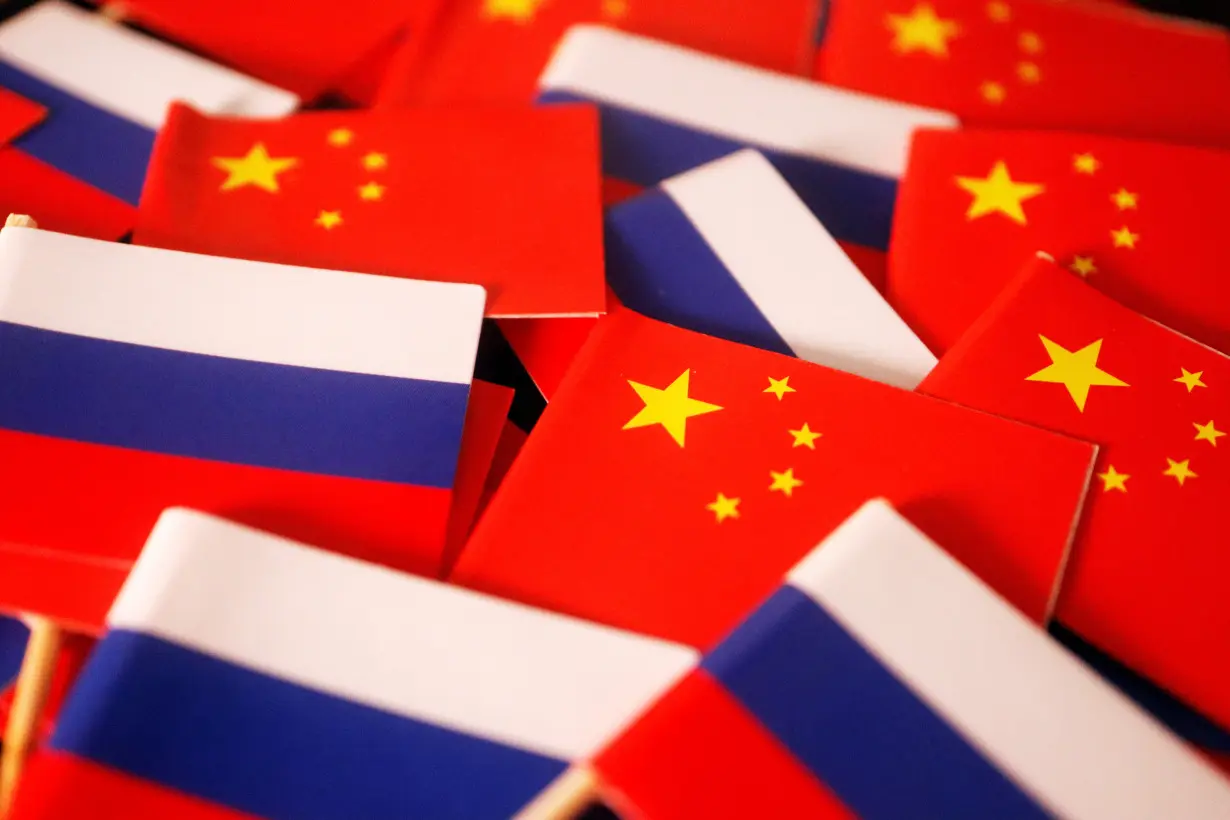WASHINGTON (Reuters) -Russia and China are increasingly cooperating in the Arctic, which could impact regional stability, the U.S. military said as it released its strategy for the region on Monday.
Russia has reopened hundreds of Soviet-era military sites in the Arctic, the report said. China, which describes itself as a "near-Arctic" state, also has ambitions there and has said it intended to build a "Polar Silk Road." China has its eye on mineral resources and new shipping routes as ice packs recede with rising temperatures.
"Increasingly, the (People's Republic of China) and Russia are collaborating in the Arctic across multiple instruments of national power," the Pentagon's report said.
"While significant areas of disagreement between the PRC and Russia remain, their growing alignment in the region is of concern, and (the Department of Defense) continues to monitor this cooperation," it added.
Arctic sea routes are increasingly being used for connecting major economies across the Pacific and Atlantic Oceans as global warming shrinks ice packs and allows for longer ice-free periods at sea.
China and Russia have been working together to develop Arctic shipping routes as Russia seeks to deliver more oil and gas to China amid Western sanctions, while China seeks an alternative shipping route to reduce its dependence on the Strait of Malacca.
"China has been participating in Arctic affairs in line with the basic principles of respecting win-win cooperation and sustainable development and has strengthened cooperation with other parties to uphold peace and stability," Mao Ning, a Chinese foreign ministry spokesperson, told reporters on Tuesday.
Security scholars and regional military attaches say China's reliance on Indian Ocean shipping routes are seen as a strategic vulnerability for Beijing, particularly in a conflict over Taiwan.
The Pentagon report added that China was looking to leverage "changing dynamics in the Arctic to pursue greater influence and access, take advantage of Arctic resources, and play a larger role in regional governance."
The report added that the U.S. military had a "monitor-and-respond” strategy in the region that was built on intelligence collection, cooperation with allies and the ability to deploy military assets.
This month, the U.S., Canada and Finland will form a consortium to build icebreaker ships, intended to bolster the allies' shipbuilding and counter Russia and China in increasingly strategic polar regions.
The deal - which the three NATO members aim to sign by year-end - will pool demand from allies to scale shipbuilding capacity, the official said, adding that it was designed to send a message to Russia and China.
(Reporting by Idrees Ali. Additional reporting by Greg Torode and Ethan Wang. Editing by Gerry Doyle and Sharon Singleton)

 Michigan strips two clerks in small town of election duties over hand count plan
Michigan strips two clerks in small town of election duties over hand count plan
 What you need to know about the 2024 US presidential election
What you need to know about the 2024 US presidential election
 BOJ to keep rates steady as politics muddles outlook
BOJ to keep rates steady as politics muddles outlook
 IMF board approves Kenya's reviews, unlocking access to $606 million
IMF board approves Kenya's reviews, unlocking access to $606 million
 Siemens to buy engineering software firm Altair for $10.6 billion
Siemens to buy engineering software firm Altair for $10.6 billion
 Accuser of Sean 'Diddy' Combs cannot remain anonymous, judge rules
Accuser of Sean 'Diddy' Combs cannot remain anonymous, judge rules
 ‘Emily in Paris’ star Lucas Bravo mulling exit from show because he’s ‘frustrated’ with his character’s direction
‘Emily in Paris’ star Lucas Bravo mulling exit from show because he’s ‘frustrated’ with his character’s direction
 Second gambler admits trying to cash in on scheme involving ex-NBA player Jontay Porter
Second gambler admits trying to cash in on scheme involving ex-NBA player Jontay Porter

